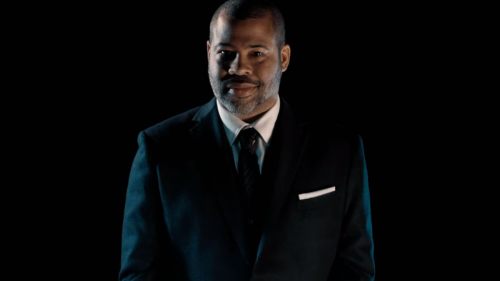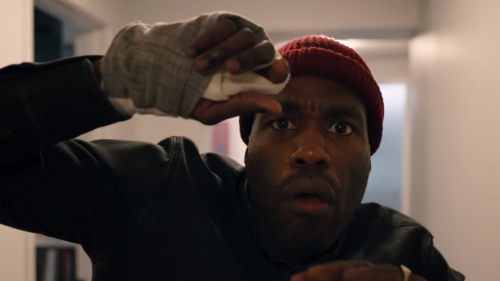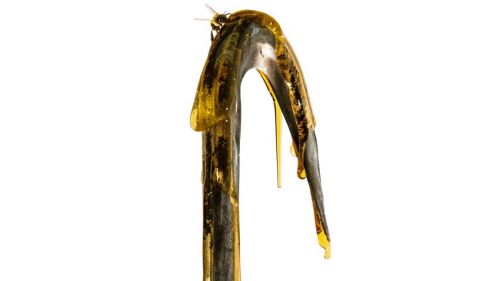GET OUT And Oscar’s Horror Problem
Over the past five decades, many have correctly hailed George A. Romero’s Night of the Living Dead (’68) as a milestone in horror cinema, both due to the staunchly independent nature in which it was produced, as well as the fact that the picture showcased a black lead in its account of marauding, flesh-hungry ghouls at the onset of a Pittsburgh apocalypse. Yet the truth is: Romero never truly intended for the first film in his soon-to-be-storied original Dead trilogy – which would continue via Dawn of the Dead (’78) and Day of the Dead (’85) – to overtly trumpet such socially-minded messaging. Romero’s long maintained that lead actor Duane Jones simply gave the best audition of the bunch, thus leading to him landing the role. The rest, as they say, is history, as Romero leaned into the allegorical element of his subsequent zombie pictures, displaying a brash embracement of his newly-minted rebel brand.
Jones wasn’t nominated for an Academy Award in ’68 – nor was Night of the Living Dead recognized, as it was still a movie that existed on the margins, playing regional circuits and midnight shows, gaining an audience through word-of-mouth as one of the “scariest movies ever made”. Instead, Roman Polanski’s Rosemary’s Baby (’68) was the main genre representative that year, as Polanski’s adaptation of Ira Levin’s eponymous novel was up for Best Adapted Screenplay, along with Ruth Gordon getting a nod in the Supporting Actress category. Polanski went home empty-handed for his iconic work of Satanic violation, while Gordon won, succeeding where former female horror performers such as Joan Fontaine (Rebecca [‘40]), Angela Lansbury (The Picture of Dorian Gray [‘45]), Eileen Heckart (The Bad Seed [‘56]), and Janet Leigh (Psycho [‘60]) failed before her.
Writer/director Jordan Peele’s stated on several occasions that Night was an influence on Get Out (’17) – the movie which just made Peele the first black man to ever get nominated for producing, directing, and writing Oscars all in the same year. Taking the social reins that Romero originally held by accident, Peele cracked the system in a way he never could. Where Hollywood kept that horror maverick at the margins, Peele penetrated its most prestigious ranks by first earning his reputation as an ingenious comedian, before parlaying that goodwill into a feature debut that took Hollywood by storm. To call Get Out one of the most important movies ever to be nominated for an Oscar is an understatement. Get Out is now one of the most important movies ever made, achieving near ubiquitous cultural acceptance (vapid dickheads like Jeffrey Wells be damned) during one of America’s most tumultuous political ages.
Along with Peele’s triple threat, Daniel Kaluuya’s (Sicario [‘15]) Best Actor nomination is rather significant, marking him as the first black man to be nominated for that Oscar in the horror genre (and only the fifteenth to be honored in that category in the ceremony’s near ninety-year existence). Curiously enough, only a handful of actors (read: male performers) have ever won Oscars for their work in horror, including Frederic March, for playing the titular roles in Dr. Jekyll and Mr. Hyde (’32), and Anthony Hopkins as Hannibal Lecter in Jonathan Demme’s operatic slice of serial killer pulp, The Silence of the Lambs (’91). To say Kaluuya’s chances of snagging a naked gold man are slim is probably accurate (especially with Gary Oldman leading the pack), though it’s remarkable to see the Academy nominating him alongside Denzel Washington (for Roman J. Israel, Esq. [‘17]), who still reigns supreme with eight nominations overall (six for Best Actor and two for Supporting), yet only one of the four wins by African-American men in the Actor slot (for diabolical detective Alonzo Harris in Training Day [‘01]).
Which brings us to the main question: how does Get Out fare in terms of winning the top prize at the ‘18 Academy Awards? If we’re going solely by the historical numbers, the answer is a succinct “not well”. Only Alfred Hitchcock’s Rebecca (’40), William Friedkin’s The Exorcist (’73), Steven Spielberg’s Jaws (’75), Jonathan Demme’s The Silence of the Lambs (’91), M. Night Shyamalan’s The Sixth Sense (’99), and Darren Aronofsky’s Black Swan (’10) have been nominated, with Rebecca and Lambs being the two that took home the gold (and a few of those titles many snobs would dispute as even qualifying as “horror”). This year sees two movies with genre elements mixed into their narratives – Peele’s Get Out and Guillermo del Toro’s The Shape of Water (’17) – possibly causing the titles to cancel one another out in voter’s minds, elevating previous favorites such as Greta Gerwig’s Lady Bird (’17) and Martin McDonagh’s Three Billboards Outside Ebbing, Missouri (’17) back toward the top. Same goes for Best Director, which sees a lower mix of historical genre odds – as only Demme won in the past for Silence – along with peer nullification.
What shouldn’t get lost in the conversation regarding Get Out’s numerous nominations is how it’s only one of a handful of horror movies to ever be nominated for Best Original Screenplay, joining M. Night Shyamalan’s The Sixth Sense, and Guillermo del Toro’s Pan’s Labyrinth (’06). Traditionally, the horror genre sees nominations for stellar adaptations – including Dr. Jekyll and Mr. Hyde (’32), Rebecca (’40), Rosemary’s Baby (’68), The Exorcist (’72), and Silence of the Lambs (’91). However, even if you counted Stanley Kubrick’s Best Adapted nod for A Clockwork Orange (’71), genre movies still aren’t breaking double digits in the writing awards department, slimming the chances of Peele’s winning, especially when placed against lauded, mostly autobiographical works The Big Sick and Lady Bird, and del Toro’s second supernatural nomination in the category for The Shape of Water.
However, perhaps it’s time to posit that this trend is precisely why Peele’s deftly structured script should win. Get Out is ultimately reflecting a person of color’s fears while living and thriving within a white-dominated society. Just look at how critics of color – including BMD’s own Dave Schilling – have related on a near elemental level to the rather chilling portrait of one black kid’s discovery of “the sunken place”, and the white folks who use it in order to possess black bodies. As Schilling astutely puts it:
"…Jordan Peele’s brilliant feature directorial debut works whether or not you’ve had someone tell you that most black people can’t swim because their skin is heavier. Even if you aren’t black, Get Out plays with and subverts your ideas of what blackness in America means to such an entertaining, thought-provoking degree that it works across demographics.”
Get Out being up for the Oscars’ biggest Awards is the exception to the rule when you look at the majority of the genre’s nominations/wins: technical achievements in the fields of makeup and SFX, ranging from Ridley Scott’s Alien (’79), to John Landis’ An American Werewolf in London (’81), to Tobe Hooper’s Poltergeist (’82), to even Tim Burton’s Sleepy Hollow (’99). At the ’18 ceremony, it’s an opportunity to honor horror’s true appeal: reflecting the personal anxieties of those who have been viewed as different, weird, or “the other” for the majority of their lives. Get Out is picking up a tradition that Romero inadvertently began with Night and Duane Jones’ casting, purposefully tackling social mores head-on while delivering a work that’s wholly thrilling, regardless of a viewer’s race. That’s the genuine aim of any art form – to grant one a glimpse into it’s creator’s worldview, causing the observer to empathize in ways they’ve always wanted to, but couldn’t due to their differing individual experiences. In short, Jordan Peele created a perfect piece of personal mainstream horror cinema, and has elevated an entire genre because of it. That’s certainly worth rewarding.



